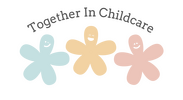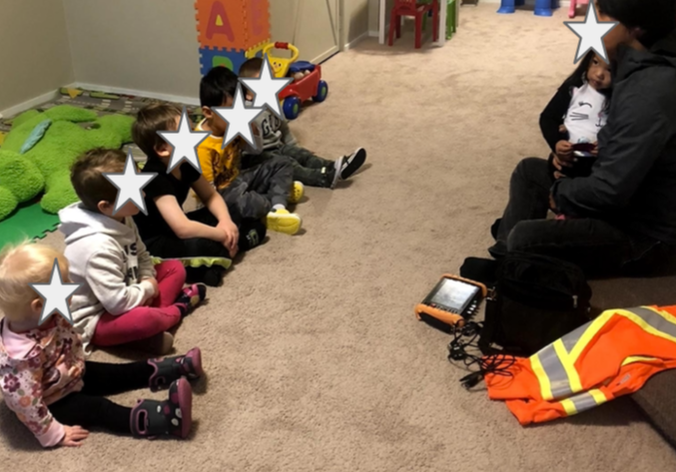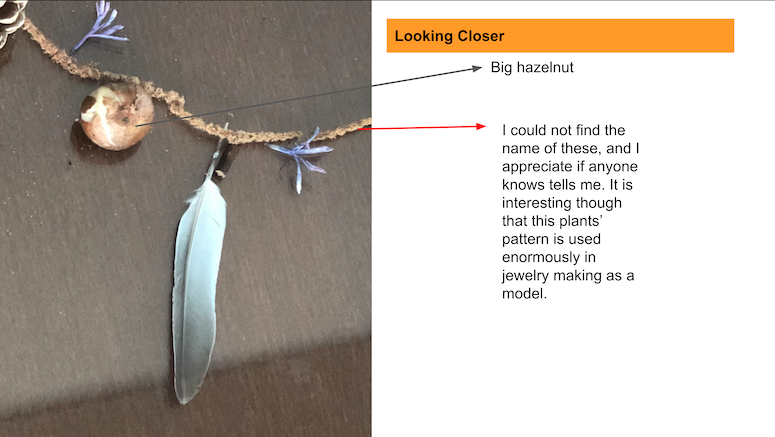Teaching Philosophy
By Zahra Rahbari
|
My Early Childhood Education philosophy has been reshaping and evolving over years of seeing the world through children’s eyes and constant reflections. The journey started very early, once I was a child myself, full of wonders, worries and queries. Then my point of view was reframed as an adult, as a parent and finally as an educator, by working with children for more than two decades. I believe, the study of Early Education and Care addresses children and families’ well-being at multiple levels, such as emotional, social, socio-cultural, and intellectual. In the following paragraphs, I have briefly elaborated on the highlights of my thoughts in early learning and care. |
Families and Early Education and Care
Children’s Voices and Early Education and Care
Children, Adulthood Life and Early Learning and Care
Sustainable Environment, Early Learning and Care
Final Thoughts
References
Fiese, B. H., & Fisher, M. (2020). Family context in early childhood education. In Saracho, O.N. (2019). Handbook of research on the education of young children (4th ed.). Routledge. https://doi.org/10.4324/9780429442827
MacKay, S. H., & Salazar, K. (2021). Story workshop: New possibilities for young writers. Heinemann.
Miller, A. (2019). Introducing Children to Materials: Two Ways that I begin. In Beautiful stuff from nature. School Arts, 119(4), 46.
Ministry of Education, BC. (2019). British Columbia Early Learning Framework. Retrieved July 7, 2020, from https://www2.gov.bc.ca/gov/content/education-training/early-learning/teach/early-learning-framework
Nascimento, A. (2016). Rethinking Common Practice in Child and Youth Care. Journal of Childhood Studies, 41 (3), 18 – 25. https://doi.org/10.18357/jcs.v41i3.16303
Nimmo, J. (2008). Young children's access to real life: An examination of the growing boundaries between children in child care and adults in the community. Contemporary Issues in Early Childhood, 9(1), 3-13. https://doi.org/10.2304/ciec.2008.9.1.3
Rinaldi, C. (2003). The teacher as researcher. Innovations In Early Education: The International Reggio Exchange. (10)2.
Szente, J., Hoot, J., & Tadesse, S. (2007). Early Childhood in Ethiopia: Initiatives in Education. Contemporary Issues in Early Childhood, 8(3), 275–281. https://doi.org/10.2304/ciec.2007.8.3.275
Testimonials
"Together in Childcare helped us truly understand our child’s needs. Their approach opened our eyes to what lies beneath the behaviour."
"Through observation and reflection, I learned to see the child’s story, not just the behaviour. It changed the way I teach forever."
"Their sessions are warm, personal, and full of real insight. I felt heard and supported as a parent navigating daily challenges."
"I used to react to my child’s behaviour. Now, I pause, observe, and understand what’s truly being communicated. This approach works."
"Together in Childcare bridges the gap between parents and educators. We now speak the same language of curiosity and care."
"I love that the focus is on the child’s emotions and environment. My son feels calmer, and so do I."
"After years of teaching, I found new joy in slowing down and documenting small moments. It reminded me why I became an educator."
"This is not about quick fixes; it’s about real connection. My child’s confidence grew once I learned to see his strengths."
"Together in Childcare inspired our whole team to reflect together. We now hold weekly observation meetings—and our program feels more connected."
"As a parent of a child with ADHD, I finally felt understood. They didn’t judge or label—just helped us see the reason behind the reactions."
"Every suggestion felt thoughtful and doable. My daughter’s transitions became smoother when we focused on rhythm instead of control."
"This approach made my classroom calmer. Children feel seen and respected, and I feel more confident guiding them with empathy."
"It’s not just about behaviour—it’s about belonging. Together in Childcare helped us create a family rhythm that honours who our child is."
|
|


